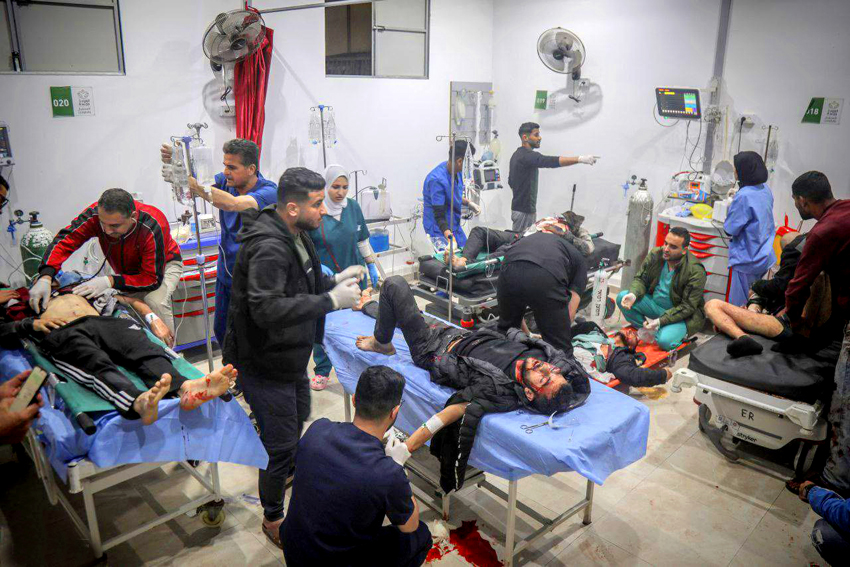
PALESTINIAN Prime Minister Mohamed Mustafa declared the Gaza Strip a famine zone yesterday, calling on the international community to implement UN resolutions prohibiting the use of starvation as a weapon of war.
He called on all UN member states to take urgent action in accordance with their obligations under international humanitarian law and to recognise the catastrophe and famine.
The World Health Organisation (WHO) announced alarming figures regarding the spread of malnutrition among children in the Gaza Strip.
Since the beginning of the year, nearly 10,000 children have been diagnosed with severe malnutrition, including approximately 1,400 who suffer from severe malnutrition requiring immediate medical intervention and treatment.
The organisation warned, according to its official website, that children who reach the stage of severe malnutrition without treatment are at risk of death.
Despite the availability of three treatment centres, the number of children receiving treatment is lower than expected, often due to difficult access or repeated displacement.
This results in one in five children not completing treatment.
The organisation expressed grave concern over the spread of acute watery diarrhoea, which poses a deadly threat to children already suffering from malnutrition due to the deterioration of the water and sanitation infrastructure in the Strip.
Israeli attacks killed at least 31 people across Gaza yesterday morning, with 13 people killed in a strike targeting al-Karama School in the Tuffah neighbourhood in Gaza City.
In a strike on a house in Jabalia in the north, three people were killed and several were wounded.
Eight people were also killed, a father, his children and cousins, including five in a strike on a home in Khan Younis city in the south.
Another three people were killed, including a child, after a tent shelter was hit in Deir el-Balah, the central Gaza Strip.
A wife and husband were also killed when a house was hit in Bani Suheila village, east of the Strip. A farmer was killed in the eastern part of Khan Younis, in Abasan, as he was trying to harvest what he had managed to plant in the past couple of months, making up for the lack of food.
The intensified attacks are compounded by the Israeli blockade on essential supplies since March 2, leaving the enclave deprived of fuel items and food, including a worsening shortage of flour.
• See editorial